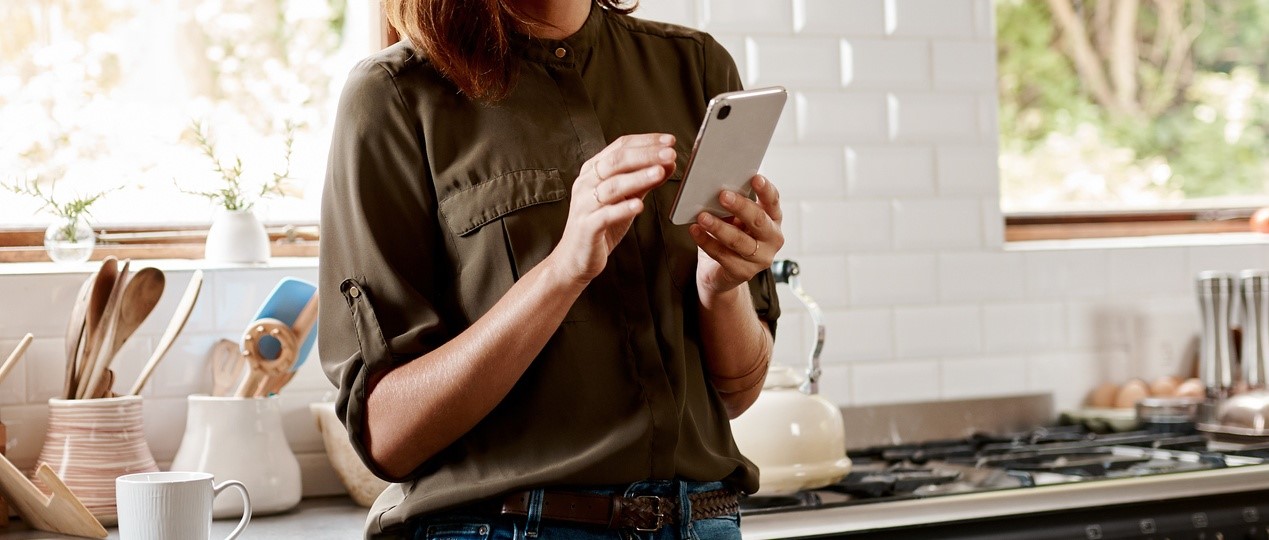
How can technology help us manage health conditions?
Peer reviewed by Dr Sarah Jarvis MBE, FRCGPLast updated by Milly EvansLast updated 5 Oct 2020
Meets Patient’s editorial guidelines
- DownloadDownload
- Share
- Language
- Discussion
- Audio Version
As more and more of us use technology to manage and simplify everyday tasks, our lives are becoming increasingly digital. And when it comes to our well-being, there are a myriad of different online options to help us stay on top of our health.
Sponsored
Alliance
Supported by Alliance Pharmaceuticals, the developers of the Living With Eczema App to help you monitor your eczema, psoriasis and other dry skin conditions. Patient.info retains sole control of the content.

In this article:
Video picks for Healthcare
From diabetes and skin conditions to mental health and physiotherapy, technology can be used for a range of health conditions to give us updates, advice and treatment whether from the comfort of home or on the go.
"With so many people living with long-term medical conditions, taking control of your own health can not only be empowering but can also dramatically reduce the risk of long-term complications," says Dr Sarah Jarvis, GP and Clinical Director at Patient Access.
"Digital tools have been a complete game-changer in this respect, making it easier for people to record and track meaningful measurements and results. They can help patients keep up to date with latest developments in their condition, spot trends in control and share results with their healthcare providers."
Continue reading below
Convenience and adherence
Following a rotator cuff injury to her shoulder, Samantha, 52, sought help from a physiotherapist to regain movement and reduce pain.
"I was referred to a physiotherapist who went through a range of exercises that I could do," she says. The physiotherapist gave her access to a free app which would help her practise the exercises at home. "There are different exercises to follow and videos to demonstrate the exercises themselves. It's really handy. You can plot your progress and you can see as you're getting better."
Even though she's now finished her course of physiotherapy, Samantha can continue using the app to prompt her and show her how to do the exercises. "I can use it for as long as I want to. I had about three physio sessions and each time they added some different exercises for me to do."
One of the benefits of having access on her phone to a guide to her exercises is that she can do the exercises wherever she wants, meaning she's more likely to adhere to the treatment plan. "It's there on my phone. I can do them in my living room and all the equipment I required was a cushion and a tiny golf ball-sized ball. It's just something you can do whilst watching TV."
The potential for technology
Back to contentsSamantha isn't the only one reaping the benefits of technology in healthcare. During the COVID-19 pandemic, more and more of us have been accessing health advice and services online. Whether you're booking a GP appointment on Patient Access, tracking changes in your eczema using the Living with Eczema app or using a mindfulness app for your mental health, there's lots to be gained at a time when face-to-face care isn't always available.
"The COVID-19 pandemic has accelerated an existing move towards more online services within the NHS. Now that they have been set up more widely in practices and hospitals, more patients are beginning to benefit from the greater convenience and flexibility they offer," explains Jarvis.
"Digital tools are proving equally essential for HCPs. We forget that in the days before widespread use of technology, we were reliant on paper call and recall systems and could not freely access results in real time."
As technology develops, time and money are saved across the healthcare system, meaning that resources can be redirected to where they're needed most. And since remote technology is often more accessible than having to go into a GP practice or pay for treatment, more patients are able to get the care they need.
The NHS is even encouraging the use of smartphone apps for management and advice for certain conditions, including weight loss, anxiety and diabetes. But their recommendations are only the tip of the iceberg, with many more available online and through your device's app store.
Continue reading below
No one left behind
Back to contentsWhilst more and more of us are reaping the benefits of technology and can get to grips with a new app or tool with ease, it's important that nobody is left behind as technology becomes more integrated with our healthcare.
Although we might assume that digital illiteracy is largely reserved for older people, that is rapidly changing as increasing numbers of older people use the internet for leisure or to stay connected to loved ones.
"Computer ownership and use is rapidly becoming the norm rather than the exception," says Jarvis.
"Household ownership of computers has risen from 27% in 1995 to almost 90% today. 4 in 5 people in the UK use a computer every day, often for most of their working day. A similar trend is seen in smartphone usage: 95% of households own at least one mobile phone, compared to 25 years ago, when fewer than 1 in 6 households had access to one.
"Nonetheless, it is important to remember that older populations may be less used to incorporating technology into their everyday activities, and to ensure that new apps and tools are as user-friendly and intuitive as possible."
As ever, it's vital that healthcare services remain easy-to-use and accessible to those with disabilities and to non-native English speakers. More and more services are offering translation and WCAG 2.1 (the accessibility standard) to ensure that everyone has access to digital healthcare.
Accessing digital healthcare
Back to contentsWhilst online and technological healthcare options may seem intimidating at first, there's plenty of support out there. If you're a total tech newbie, take a look at some of the digital literacy courses online, such as those available through the BBC and Barclay's. Local libraries often offer courses or support groups, although these may not be available at the moment due to social distancing restrictions.
Take a look at your smartphone's app library for healthcare options from the palm of your hand. Some charities have their own apps so it's worth checking relevant websites for useful tools to manage your health condition.
If digital healthcare just isn't for you, face-to-face options will always be available to those who need them. But for people looking for more convenient options to manage their health conditions, digital technology is increasingly becoming our go-to as it becomes smarter, cheaper and more accessible to everyone.
For those living with eczema, the Living With Eczema app is available to download on iOS or Android to help you track and manage your symptoms and treatment.
Patient picks for Healthcare

General health and lifestyle
How to ease worry when waiting for medical test results
Health care screenings, doctor appointments and medical tests are a common part of life. We rely on them to monitor and maintain our overall health. So if you happen to be someone who finds waiting for results particularly difficult, what can you do?
by Victoria Raw

General health and lifestyle
What is peer support and how can it help you?
Peer support is broadly defined by Mind as a place where people can ‘use their own experiences to help each other’.
by Ellie Broughton
Continue reading below
Article history
The information on this page is peer reviewed by qualified clinicians.
5 Oct 2020 | Latest version

Ask, share, connect.
Browse discussions, ask questions, and share experiences across hundreds of health topics.

Feeling unwell?
Assess your symptoms online for free
Sign up to the Patient newsletter
Your weekly dose of clear, trustworthy health advice - written to help you feel informed, confident and in control.
By subscribing you accept our Privacy Policy. You can unsubscribe at any time. We never sell your data.